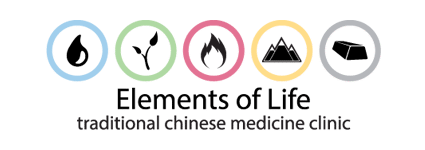Acupuncture for Menopause Symptoms: A Natural Approach to Relief
Are you struggling with hot flushes and night sweats during menopause? While hormone therapy is common, many women are now exploring acupuncture as a gentler option. Let’s dive into how this ancient practice can ease menopause symptoms and boost your overall health.
Understanding Menopause and Hot Flashes
What Are Hot Flashes?
Hot flushes are a telltale sign of menopause. Picture a sudden wave of heat washing over your face, neck, and chest, often with sweating and a racing heart. These can last from a few seconds to several minutes, typically around four minutes on average.
Causes of Hot Flashes
Hot flushes are closely linked to hormonal changes during menopause, particularly the fluctuation and decline of oestrogen. These changes throw off your body’s internal thermostat, making it overreact to normal temperature changes. (3)
Impact on Quality of Life
For some women, hot flushes are just a minor nuisance. For others, they can be a real nightmare, disrupting sleep and daily routines. Night sweats often lead to sleepless nights, leaving you tired and foggy-headed. Beyond the physical discomfort, hot flushes can also take an emotional toll, ramping up anxiety and dampening your mood.
How Acupuncture Works for Menopausal Symptoms
Traditional Chinese Medicine Perspective
In TCM, menopause is viewed as a change in Yin and Yang energies, often caused by Kidney Yin deficiency and internal heat, leading to symptoms like hot flushes, night sweats, and mood swings. Acupuncture addresses these imbalances by stimulating points that promote Qi flow, cool down internal heat, and strengthen Yin and Kidney functions. Chinese herbal medicine is also commonly used to replenish Yin and cool the body. In TCM, diet and lifestyle are vital in balancing internal energies, incorporating cooling foods and stress-reduction practices to support the body during this natural transition.
Scientific Explanations
From a Western perspective, acupuncture is thought to influence beta-endorphin release, which helps regulate body temperature and reduce hot flush frequency. It may also affect cortisol levels, which tend to rise after menopause, impacting mood and metabolism. (1)
Benefits of Acupuncture for Hot Flashes
Fewer and Milder Flushes
Research suggests that acupuncture can reduce both the frequency and severity of hot flushes. A review of studies has shown that acupuncture helped women going through menopause. The effects often lasted for months, giving long-term relief. (1) (2)
Improved Sleep Quality
Women dealing with night sweats and trouble sleeping may find acupuncture helpful. Several studies show that women who get acupuncture sleep better and longer, with fewer wake-ups at night. These benefits often continue even after treatment ends, helping women feel better overall. (1) (2)
Mood Stabilisation
The hormone changes during menopause can cause mood swings and anxiety. Acupuncture has shown promise in stabilising mood by alleviating anxiety and depressive symptoms. Research suggests it can lead to lasting improvements in emotional wellbeing, helping women cope better with the emotional ups and downs of menopause. (1)
Metabolism
Acupuncture can play a valuable role in supporting metabolism during menopause by helping the liver process fats more effectively, which may assist with weight management and reduce fat buildup (5). By naturally boosting oestradiol levels, acupuncture encourages the body to burn fatty acids, which can help counter metabolic challenges that often accompany menopause (4). This balancing of hormones not only improves lipid profiles but also addresses changes in metabolism as oestrogen declines, promoting a healthier transition. As a holistic therapy, acupuncture nurtures these essential pathways, supporting women’s health through this phase of life.
Getting Started with Acupuncture Treatment
What to Expect During Sessions
Your first acupuncture session will involve a thorough consultation, where the practitioner will develop a personalised treatment plan based on your symptoms and overall health. The actual treatment involves lying comfortably as fine needles are inserted into specific points on your body. Many women report feeling deeply relaxed after treatment.
Recommended Treatment Frequency
How many sessions you need depends on your symptoms and how you respond to treatment. Usually, you start with weekly visits, then space them out as you feel better. Your practitioner will adjust your plan to suit you and keep an eye on how you’re doing.
Conclusion
Acupuncture offers a natural and effective approach to managing menopausal discomfort, from hot flushes to mood swings. By harmonising the body’s energies and addressing root causes, it provides a drug-free alternative that’s gaining popularity among women seeking holistic relief. If you’re struggling with menopausal symptoms, consider exploring acupuncture to enhance your quality of life.
If you’re keen to learn how acupuncture and Chinese medicine can help alleviate your menopause symptoms, click here to book a complimentary discovery call today (Under Welcome Promotions). Our experienced practitioners are here to address any queries and help you find the right treatment plan for your unique needs.
Written By Si Hwan Jin

Si Hwan Jin is an Acupuncturist and Chinese Herbal Medicine Practitioner. With degrees from Torrens University and University of Melbourne, he’s registered with CMBA under AHPRA. Jin focuses on musculoskeletal, digestive, mental, and women’s conditions, offering personalised treatments. He combines Traditional Chinese and Korean medicine principles, including acupuncture, to restore balance and enhance the body’s healing abilities. Jin prioritises client-centred care in his holistic approach to wellness.
Contact Us | Book online or call (03) 9807 3171
Book an appointment with Si Hwan Jin
References
1- https://www.ncbi.nlm.nih.gov/pmc/articles/PMC4874921/
2- https://bmjopen.bmj.com/content/9/1/e023637


